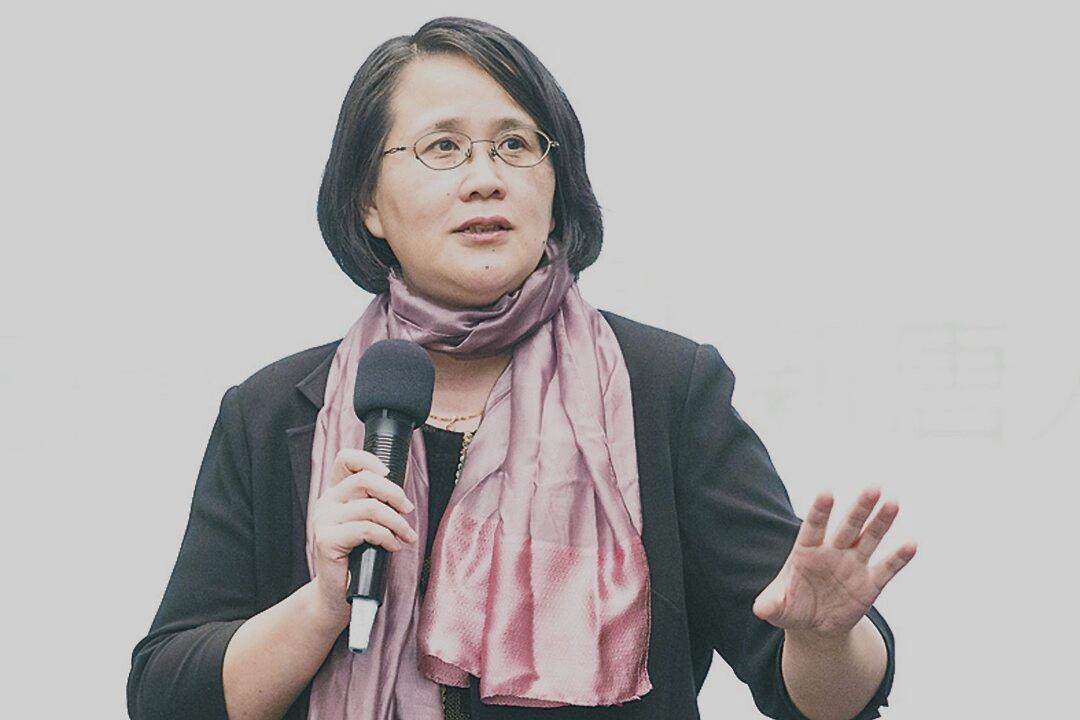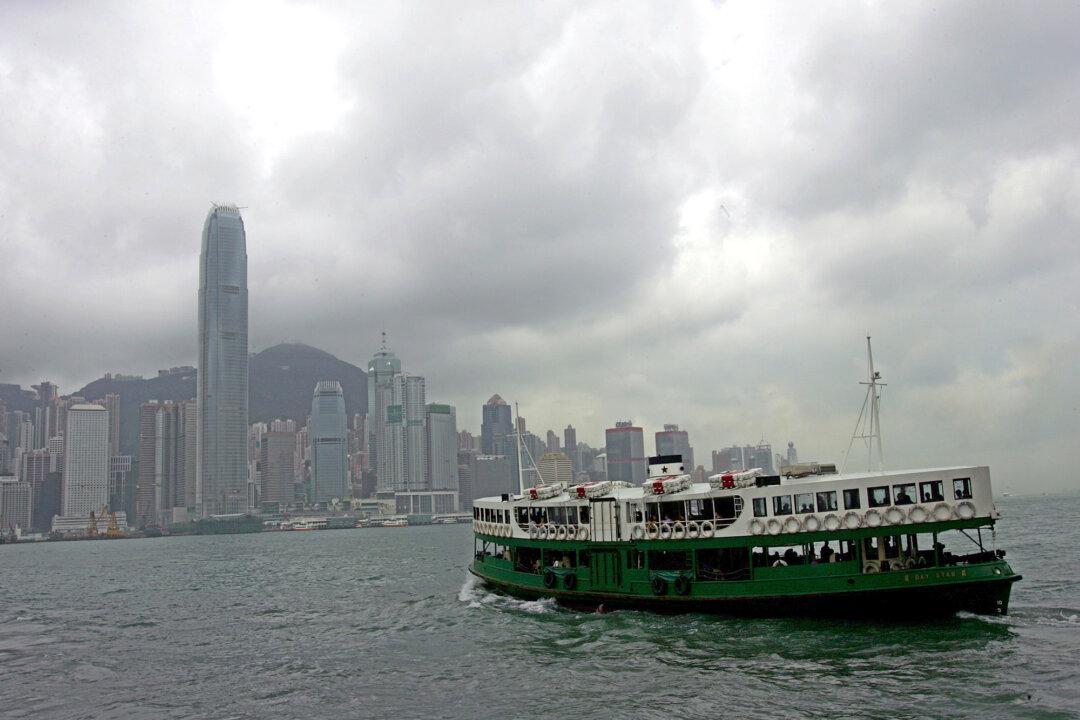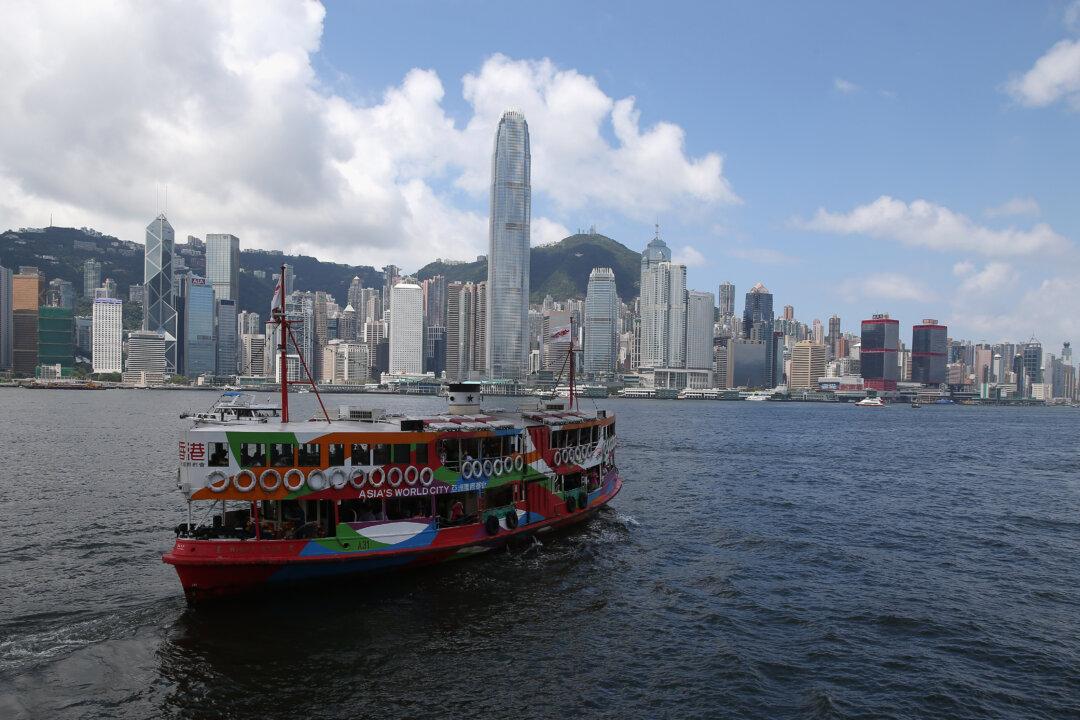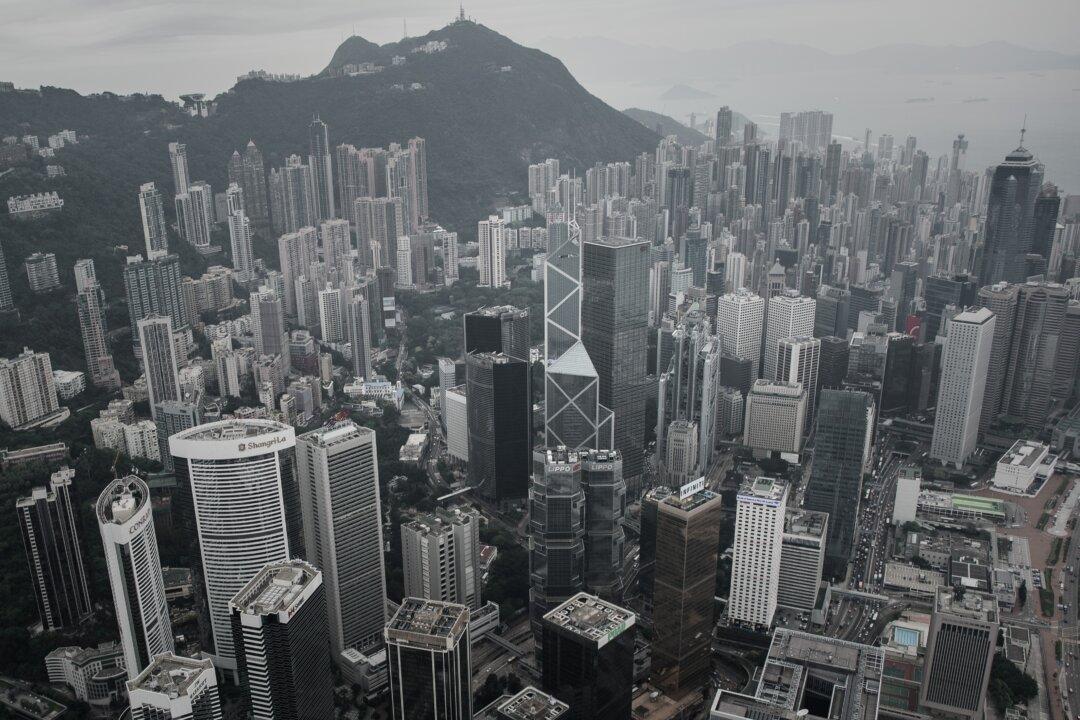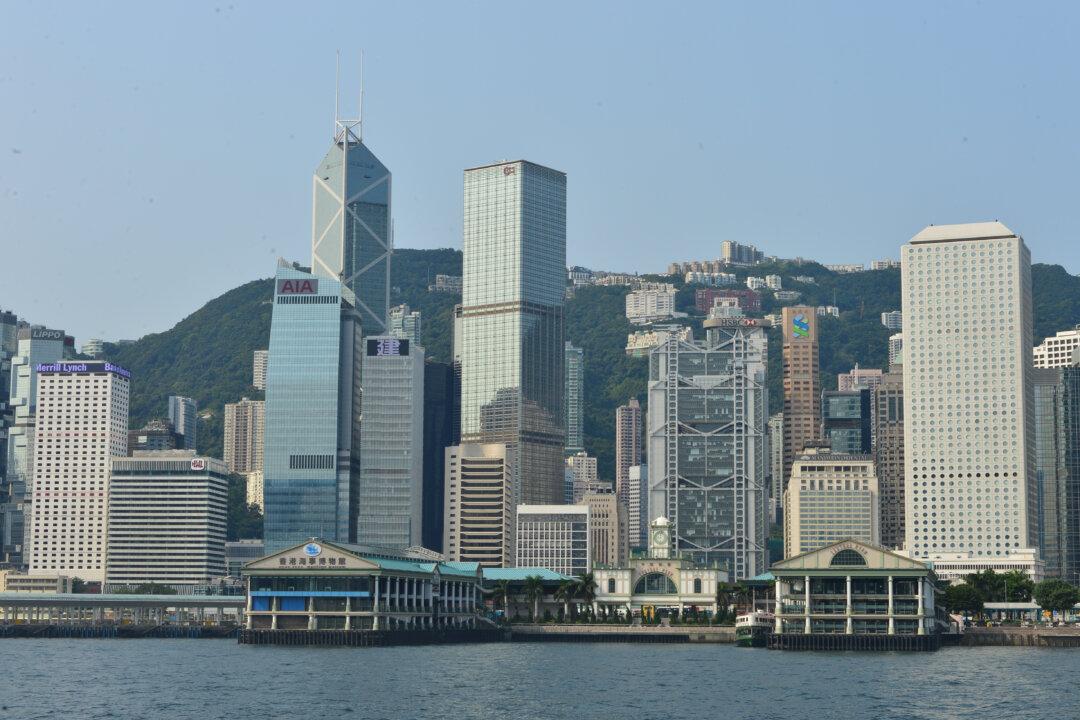On Feb. 18, 2015, Epoch Times Hong Kong branch president Ms. Guo Jun gave a speech in Tokyo’s Shinjuku Keio Plaza hotel on the current affairs of China. She provided a detailed analysis of some key issues surrounding the great changes China is currently going through and their implications for Japanese and Hong Kong society.
The truth about Falun Gong is a global event that will affect the world and the future of China.
Since the 18th National Congress of the Communist Party of China, the officials who have been sacked from their positions, from the central to the local government, are mostly loyalists of former Party leader Jiang Zemin. Recently a dozen generals fell, and the majority of them were followers of Jiang in the military.
These are indications that a major change will happen in China. According to sources, current Party leader Xi Jinping’s clearing out of Jiang’s supporters has extended to the economy sector, and it is expected that there will be significant adjustments to economic policies as well as a large transfer of wealth.
At present, the international community is paying close attention to the situation in China after Xi consolidates his power. They want to know the truth of China.
The power struggle between Xi and Jiang has brought out the facts about the Falun Gong spiritual practice, which has been covered up for 15 years by the Chinese Communist Party (CCP).
For the past two years, after every battle between Xi and Jiang, more of the facts about Falun Gong have been exposed. This includes the downfall of officials from the Jiang faction who have framed Falun Gong.
The sacked officials include Li Dongsheng, vice minister of China’s Ministry of Public Security; Su Rong, vice chairman of the Chinese People’s Political Consultative Conference (CPPCC); Wu Changshun, police chief of Tianjin; and Wan Qingliang, Party chief of Guangzhou City. All of these are related to the power struggle between Xi and Jiang.
Li Dongsheng’s Fall
On July 14, 2013, a case was filed to launch an investigation of Li Dongsheng. In addition to being the vice minister of public security, Li was the former director of the 610 Office, an organization created by the CCP for the purpose of persecuting Falun Gong.
On Dec. 20, 2013, Li was investigated, and he was removed from power five days later.
Eight days before, on Dec. 12, the European Parliament in Strasbourg, France, had voted to pass an emergency motion. It requested that the CCP “immediately stop live organ harvesting from prisoners of conscience, religious groups, and ethnic minority groups.”
The motion called for the EU to “make a comprehensive and transparent investigation into such unethical behavior related to the persecution.” The motion also called on the CCP to immediately release all prisoners of conscience, including Falun Gong practitioners.
Epoch Times has learned that Li’s fall was caused by the anti-live organ harvesting motion by the European Parliament. The motion shocked Zhongnanhai, the CCP’s leadership compound, because it exposed the CCP’s crime of live organ harvesting worldwide.
The current authorities had to respond quickly with countermeasures. Therefore Li, who had been arranged to be purged in 2014 along with former Politburo member Xu Caihou, was handled earlier.
The official announcement of Li’s downfall stressed his involvement in the persecution of Falun Gong, and three mysterious titles of his were revealed: deputy head of the Central Preventing and Dealing with the Questions of Cults Team, director of the Central Preventing and Dealing with the Questions of Cults Office (the 610 Office), and director of the State Council’s Preventing and Dealing with the Questions of Cults Office.
The people in power are sending a message that they do not wish to become the scapegoat for the persecution of Falun Gong.
Jiang’s Crimes Exposed
On July 20, 1999, then-Party leader Jiang Zemin started the cruel persecution of Falun Gong practitioners who believe in truthfulness, compassion, and tolerance. The persecution has continued to this day.
Jiang wanted to eradicate Falun Gong, and he used policies such as: “Totally defame practitioners’ reputations, deprive them of economic resources, and physically eliminate them;” “Killing them is counted only as suicide;” “Directly cremate without confirming body identity;” and “No need to follow the law when handling Falun Gong cases.”
He also passed down the order to take practitioners’ organs while they are still alive.
With the involvement of former Politburo Standing Committee member Zeng Qinghong, former secretary of the Politics and Law Committee Luo Gan, and former security boss Zhou Yongkang, thousands of innocent Falun Gong practitioners have been brutally persecuted and slaughtered. The CCP has taken vital organs from large numbers of living Falun Gong practitioners, and countless practitioners have been killed.
Due to the efforts of 100 million Falun Gong practitioners inside and outside China to persistently spread the facts for the past 15 years, the CCP’s crimes are widely exposed. More and more countries and regions have started to support Falun Gong and condemn the CCP for its inhuman atrocities.
Staged Self-Immolation
Li Dongsheng graduated from Fudan University with a degree in journalism, and he started to work for China Central Television (CCTV) in 1978.
On April 1, 1994, CCTV aired a daily news program called Focus Report, and Li was one of the producers. Later, when he served as deputy director of CCTV, he took charge of the program.
When Falun Gong was persecuted in 1999, Focus Report was broadcast at prime-time with many programs discrediting Falun Gong.
According to a rough estimation by the World Organization to Investigate the Persecution of Falun Gong (WOIPF), during the six and a half years from July 20, 1999 to 2005, Focus Report broadcasted 102 episodes of anti-Falun Gong programs. This resulted in Li’s rapid promotion.
The report that sent Li to the peak of his career was the staged Tiananmen self-immolation incident.
On Jan. 23, after the incident took place, CCTV broadcast the news on Focus Report, claiming that the self-immolators were Falun Gong practitioners. The aim was to stir up hatred towards Falun Gong.
Later it was proven to be a conspiracy to frame Falun Gong, led by Luo Gan and assisted by Li with media reporting. On Aug. 14, 2001, the International Educational Development (IED) organization made a public announcement at a United Nations meeting: “Our investigation showed that it was actually the CCP authorities who staged the self-immolation and destroyed those lives.”
They also announced, “The CCP authorities attempted to use the self-immolation in Tiananmen Square on Jan. 23, 2001 to frame Falun Gong. However, we acquired a self-immolation analysis video which clearly showed that the CCP regime directed and staged the entire incident.”
Su Rong’s Fall
Su Rong, former vice chairman of the Chinese People’s Political Consultative Conference and a loyalist of Zeng Qinghong, was removed from office. Su is very close to Zhang Dejiang, chairman of the National People’s Congress (NPC).
According to sources, Zhang was involved in Su’s and Xu Caihou’s cases. The authorities have gathered evidence of this, so Zhang is in the hot seat.
Currently Zhang is the highest-ranking official in Jiang’s faction. On June 10, 2014, Zhang released a white paper about Hong Kong in order to disrupt Xi’s authorities’ deployment.
Four days later Zhang’s political ally, Su, was sacked. This was another round of wrestling between Xi and Jiang.
It has been reported that this white paper was a scheme by the Jiang faction, intended to intensify the situation in Hong Kong. The Jiang faction wanted to take seats on the National People’s Congress Committee to override Xi.
This incident was one of the events that sparked the Umbrella Movement for democracy in Hong Kong.
Su was put under investigation on June 14, 2014. He was the highest-ranking official in the national leadership to be purged after the 18th National Congress.
Later, CCP mouthpiece Xinhua Net released at least seven articles exposing Su. The articles also speculated about who was the “big tiger” behind Su.
On June 25, 2014, Su was removed from his position as vice chairman and from membership in the Chinese People’s Political Consultative Conference National Committee. On Sept. 25, the Jiangxi People’s Congress announced that Su was dismissed from his Communist deputy position.
While Su was deputy secretary of the Party Committee in Jilin Province from 1999 to 2001, he was also the head of the “Small Leading Group for Dealing With the Falun Gong Question.” The job of the Small Leading Group was to coordinate efforts to persecute Falun Gong practitioners in Jilin Province.
After Su was appointed as Party chief of Qinghai and Gansu Provinces, he put more effort into carrying out the Jiang faction’s persecution policies against Falun Gong.
In Oct. 2004, when Su was visiting Zambia with a group of other Party officials, he was served papers in a civil lawsuit for murder, torture, and defamation of Falun Dafa practitioners. The High Court of Zambia issued an arrest warrant and dispatched police to search for Su, ordering him to remain in the country for a hearing on Nov. 8.
However, it is said that Su fled the country through the Chirundu border crossing with the assistance of the Chinese Consulate.
Wan Qingliang’s Fall
On June 27, 2014, Party secretary of Guangzhou City Wan Qingliang was announced to be under investigation by the Central Discipline Inspection Commission (CDIC).
The shocking news shook the Guangdong Province officialdom. Like Su, Wan was also a member of the Jiang faction.
There has been no sign of Wan’s arrest. A story went viral that he was directly taken from a meeting by the CDIC officials and put on a flight to Beijing.
Wan is the highest-ranking official who has been investigated in Guangdong Province since the 18th National Congress.
Wan earned his promotion by currying favor with Zhou Yongkang and Zeng Qinghong. Wan’s henchman Chen Hongping, Party secretary of the city of Jieyang in Guangdong, got the contracts of some major infrastructure projects.
These include the Chaoshan airport, an oil refinery project, and the CNOOC LNG terminal. All of these projects are from the sectors controlled by Zeng and Zhou.
As a Jiang faction loyalist, Wan has spared no effort to implement Jiang’s persecution policy against Falun Gong. Wan is on the list of the WOIPF.
According to the WOIPF, when Wan served as Guangdong Provincial Communist Youth League secretary, in order to gain political capital he carried out all kinds of propaganda and activities to discredit Falun Gong among Guangdong youth and students. He also actively cooperated with the media to “educate” people with large amounts of CCP propaganda against Falun Gong.
In March 2003, Wan was promoted to become Jieyang’s vice Party secretary, vice mayor, and acting mayor by Guangdong’s governor, Huang Huahua. In Oct. 2004, Wan was appointed as Party secretary and chairman of the Municipal People’s Congress Standing Committee.
In Jieyang, Wan deployed the public security system to unlawfully arrest, detain, harass, torture, and slaughter Falun Gong practitioners. He also set up the so-called “Moral Base” to organize local students to watch anti-Falun Gong videos and photo galleries slandering Falun Gong.
Wu Changshun Sacked
On July 20, 2014, the CCP’s Tianjin police chief, Wu Changshun, was declared to be sacked.
It has been reported that Wu was the key person who manipulated the facts surrounding the April 25 peaceful appeal by Falun Gong practitioners. He plotted and framed practitioners, turning the peaceful protest into the so-called “surrounding Zhongnanhai incident,” which later became one of the excuses for the persecution of Falun Gong.
Wu is the right-hand man and confidant of Song Pingshun, the Tianjin Secretary of Politics and Law. In 2007, after Song committed suicide, Wu was put under investigation.
According to Caixin Net, Zhou Yongkang appreciated Wu and kept him safe from the investigation. Song was one of Luo Gan’s main followers, and he also participated in and plotted the so-called “surrounding Zhongnanhai incident.”
Jiang Framed Falun Gong
On April 11, 1999, Luo Gan’s relative He Zuoxiu published an article titled “I Do Not Agree With Adolescents Practicing Qigong” in the magazine Science and Technology for Youth, sponsored by the Education College in Tianjin City to attack Falun Gong.
He’s article was very misleading and adversely impacted the great number of readers who did not know the facts. It was especially poisonous to the minds of young people.
At the same time, it brought negative effects to Falun Gong. Seeing the adverse situation, many practitioners became very concerned.
Tianjin practitioners considered He’s article false and potentially misleading for people who lacked knowledge of Falun Gong. From April 18 to 23, they went to the Education College and relevant authorities to clarify the facts.
On April 23 and 24, the Public Security Bureau in Tianjin City deployed riot police who unlawfully used violence to arrest many Falun Gong practitioners. Some practitioners were seen bleeding, and 45 were arrested.
When Falun Gong practitioners requested that all the arrested practitioners be released, they were told by the Tianjin Public Security bureau that the operation was under the direction of higher authorities. Without Beijing’s consent, the arrested practitioners would not be set free.
Tianjin police told them to take their request to the State Appeals Office in Beijing, and that only by doing so would the problem be solved.
On April 25, about 10,000 Falun Gong practitioners voluntarily gathered at the State Appeals Office near Zhongnanhai to exercise their citizens’ right to appeal.
At first the practitioners gathered around the State Appeals Office. Later several policemen told them that one place was not safe and another place was off limits. Following police instructions, the practitioners divided into two groups alongside Zhongnanhai.
Later, He Zuoxiu arrived and tried to disturb the practitioners, but no one responded to him.
According to a witness, on the evening of April 24, some practitioners working in the Public Security Department had already submitted their name cards to Zhongnanhai, asking for a chance to discuss the situation. There was no response.
At 9pm, practitioners started to gather on Fuyou Street near Zhongnanhai, some with luggage, some with meditation mats. Most of them were from cities outside Beijing.
At 6am on April 25, a witness went to the north entrance of Fuyou Street and discovered that policemen were blocking the way to Zhongnanhai. None of the practitioners attempted to force their way through, but they witnessed an astonishing scene.
Police first led the practitioners from the east side of the street to the west side, and then directed them to walk south toward Zhongnanhai. Meanwhile, another group came from the opposite direction, also led by police, and both groups met right outside the main entrance of Zhongnanhai.
According to the media, there were over 10,000 practitioners gathered outside Zhongnanhai.
Soon there were practitioners approaching from all directions. They filled all the sidewalks outside Zhongnanhai, but the traffic was not blocked at all, and even the route for handicapped people remained clear.
Then-Premier Zhu Rongji came to meet with the practitioners and assured them that the government did not oppose Falun Gong. In the evening, Tianjin police released all the practitioners.
This incident earned international fame as the largest petition in China’s history, as well as the most rational and peaceful.
That evening, Jiang wrote a letter to every standing member of the Political Bureau, groundlessly alleging that someone was behind the 4/25 petition.
In order to make up excuses for persecution, Jiang described the peaceful petition as tens of thousands of Falun Gong practitioners sieging Zhongnanhai. He deployed all the state media to spread lies, and the truth has been covered up to this day.
Jiang faction members who are guilty of crimes against humanity are afraid of being held accountable. Xi’s authorities are carrying out reforms within the CCP mechanism, but the nature of the CCP and the system will be utilized by the Jiang faction to attack Xi.
As the power struggle intensifies, more covered-up facts will come to light. These facts are the major events that will influence the world and the future of China.
China has become the second largest global economy today. Falun Gong is no longer a human rights issue, but a major event that will impact all countries, consortiums, and even people’s lives.
In this sense, it is very urgent and important to understand China’s political situation and to learn the truth of Falun Gong.
This is the end of this series.
Translation by Michelle Tsun. Written in English by Sally Appert.
